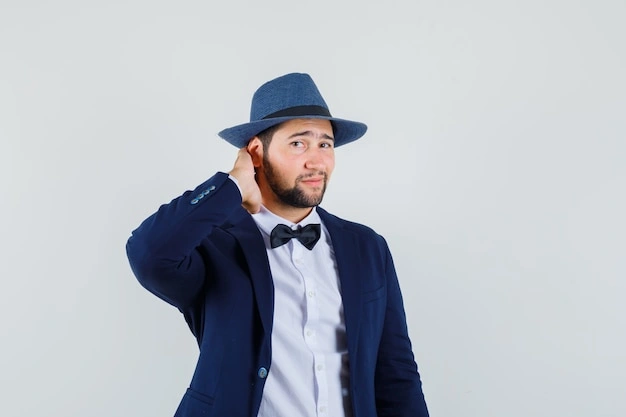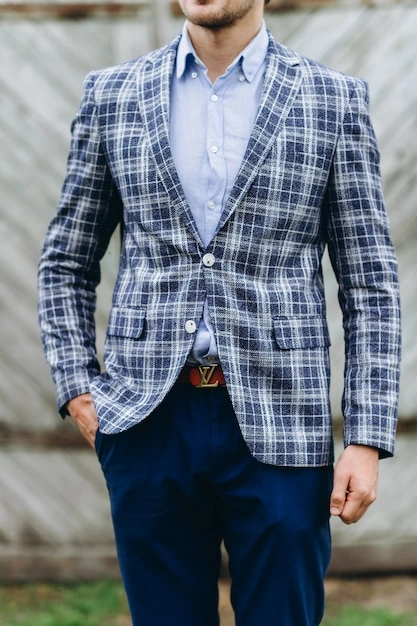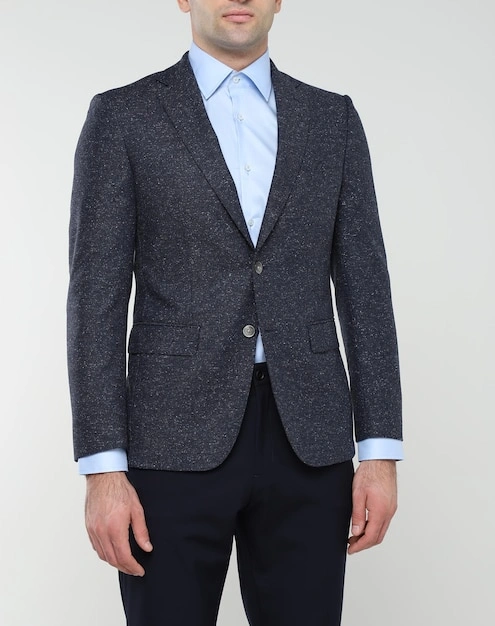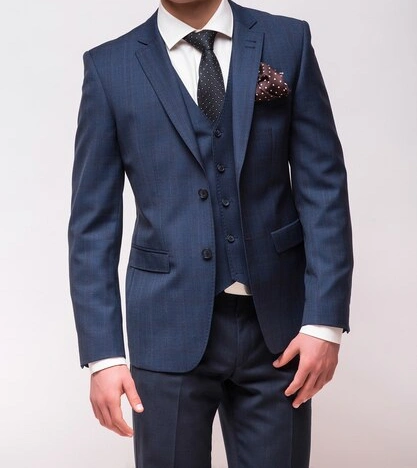
Men's jackets remain one of the staples of today's fashion, yet selecting one may not be as easy. Be it a sport coat, blazer, or suit jacket, each of these options possesses distinct characteristic features, versatility, and levels of formality. Understanding these differences is crucial in curating a wardrobe that can adapt to any occasion with ease and sophistication. In the following guide, we go in-depth into the cardinal differences for your better enlightenment in making style decisions. When you understand the difference, the communication with custom clothing manufacturers will be smoother, and you will be clear about the specific content you want to customize.

The sport coat began as a functional outdoorsman's jacket for hunting or horseback riding. It evolved, however, into a casual yet stylish outdoor jacket. Some of the key components are:
· Fabric: Made from durable tweed, herringbone, or corduroy materials. These fabrics offer texture and warmth, making them perfect for cooler months and outdoor settings.
· Design: Generally unstructured or lightly structured, cut with checks or plaids for a casual look. The sport coat often features patch pockets, adding to its more laid-back appeal. Sport coats also frequently include elbow patches or more casual detailing, further emphasizing their functional, outdoor origins. These small details are a testament to the versatility and charm of the sport coat.
Sport coats are great for semi-casual events where comfort and sophistication blend. They're great for occasions when you want to dress up without going overboard. Try pairing them with chinos or jeans for office casual looks or informal gatherings. Unlike suit jackets, sport coats are designed to be worn without matching pants. Their easygoing nature makes them a great choice for casual meetups or informal office settings where a full suit would be too much.

Blazers have their origin in British naval uniforms and later in club members. They are more formal than sport coats but less formal than suit jackets. While a blazer retains some of the casualness of the sport coat, it has a more polished and refined appearance, making it a versatile option for both professional and social settings. Key characteristics include:
· Fabric: Solid-colored fabrics like wool or cotton, often in navy or black. These colors give the blazer a crisp, structured appearance that is perfect for both professional and casual settings.
· Details: Metal or contrasting buttons are a signature feature. The button style is often a distinguishing factor between blazers, with gold or silver buttons adding a touch of luxury and formality.
Blazers exhibit significant versatility: they can be paired with fitted trousers or dark denim for smart casual occasions, or alternatively, combined with khakis for a more laid-back gathering. The essential element in achieving an exemplary blazer appearance is the fit, alongside the appropriate choice of trousers. To attain a contemporary and polished aesthetic, one should choose tailored trousers; conversely, for a more informal style, dark jeans serve as an effective option. Their sustained glamour makes them a must for transitional clothing. Moreover, blazers can be donned over a t-shirt or an informal sweater to create a perfect balance between casual and elegant looks good enough for everyday wear.
Looking for the perfect custom Smart Casual pieces? Consider having a blazer tailored to suit your personality and fit, adding an extra layer of sophistication to your ensemble.

A suit jacket is the most formal option. It is designed to form part of a matching set, which includes trousers. Defining features of the suit jacket include:
· Fabric: Of fine wool or wool blends, often solid-colored or with subtle patterns.
· Structure: Highly structured, padded, and tailored to perfection. The precise tailoring of a suit jacket provides a sharp silhouette, with structured shoulders, a defined waist, and a clean line from top to bottom.
· Matching Pants: Always included with matching trousers in order to create an overall look.
Suit jackets are perfect for business meetings, weddings, and formal events. While a suit jacket can be separated, it's best paired with its original trousers for a complete, polished appearance. For an even more elevated look, consider pairing your suit jacket with a vest, which enhances both the formality and style of your ensemble. Consider sourcing custom formal wear options to create a tailored suit jacket that fits perfectly and enhances your look.
· Sport Coat: Casual fabrics like tweed or linen, often with bold patterns. The texture and color variety in sport coats allow for a relaxed, individualistic style.
· Blazer: Solid colors, lightweight fabrics, and decorative buttons. The blazer offers a cleaner, more streamlined look compared to the sport coat, making it suitable for a wider range of occasions.
· Suit Jacket: Formal fabrics with a matching trouser set. Suit jackets are crafted with meticulous attention to detail, often in luxurious fabrics like fine wool or silk blends.
· Sport Coat: Most casual, ideal for semi-formal and relaxed settings.
· Blazer: Bridges the gap between casual and formal, versatile for work or dinner outings.
· Suit Jacket: The most formal, suited for weddings, business, or black-tie events.
Knowing the difference between a sport coat, blazer, and suit jacket is critical to creating a versatile wardrobe. Understanding these distinctions ensures you are never underdressed or overdressed for an occasion, allowing you to navigate any event with ease. Each piece serves a different purpose:
· Sport Coats for casual versatility.
· Blazers for semi-formal sophistication.
· Suit Jackets for ultimate formality.
Wearing the right jacket ensures you are always appropriately dressed for whatever occasion arises. Incorporating a variety of these jackets into your wardrobe allows you to seamlessly transition from casual days to formal evenings, ensuring you're prepared for any event with style and confidence.
Yes, but it depends on the fabric and design. A plain suit jacket can work as a blazer, but avoid wearing patterned or overly formal suit jackets casually.
When worn independently, a suit jacket is often referred to as a blazer, although they differ slightly in construction.
A sport coat is more casual, made from textured or patterned fabrics, while a blazer is sleeker, often in solid colors with decorative buttons.
Opt for a sport coat in casual or semi-formal settings where a full suit might be too formal.
The blazer is the most versatile, balancing casual and formal elements for various occasions.